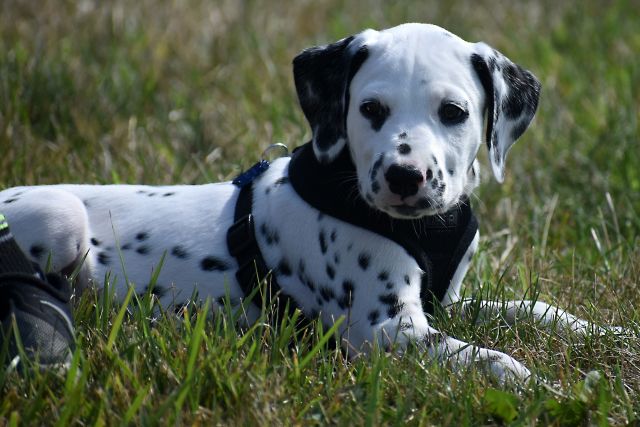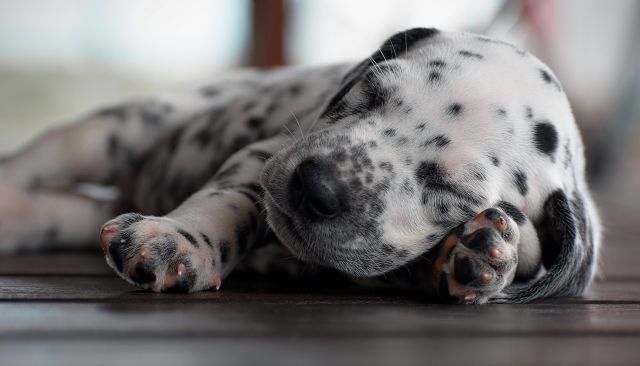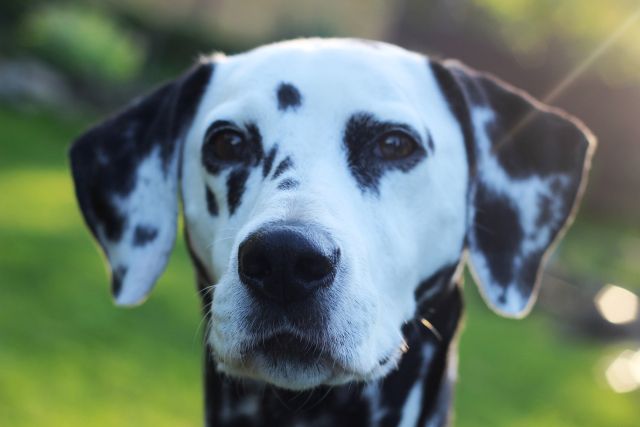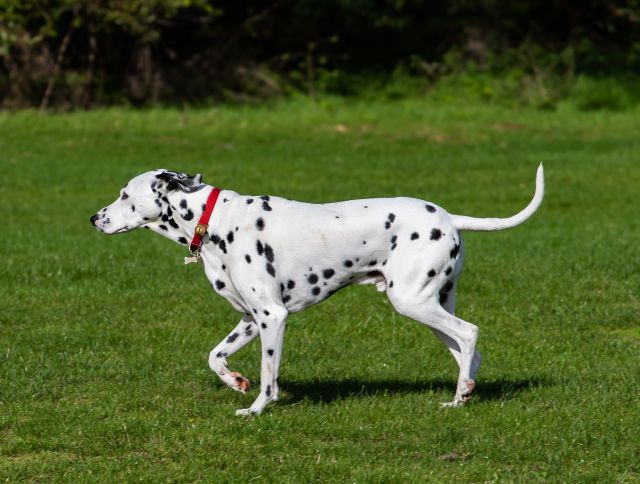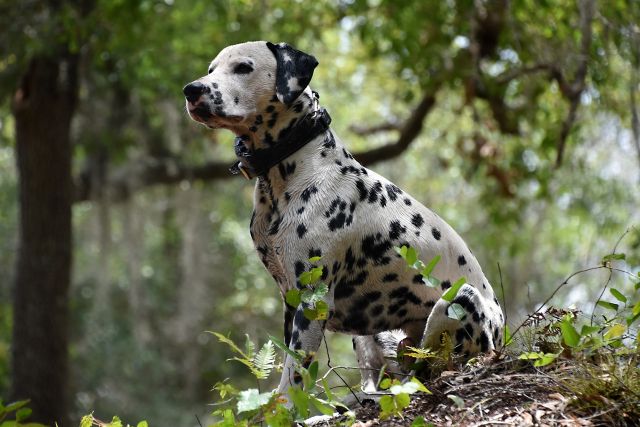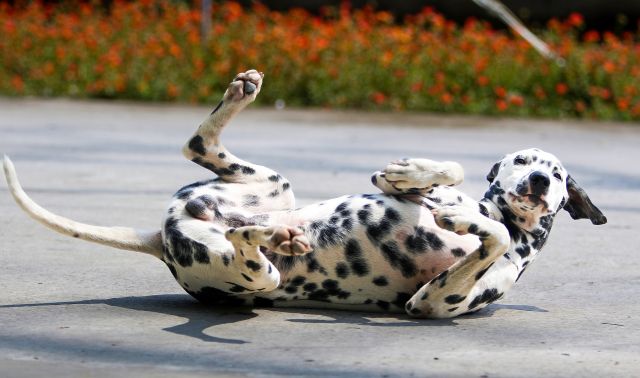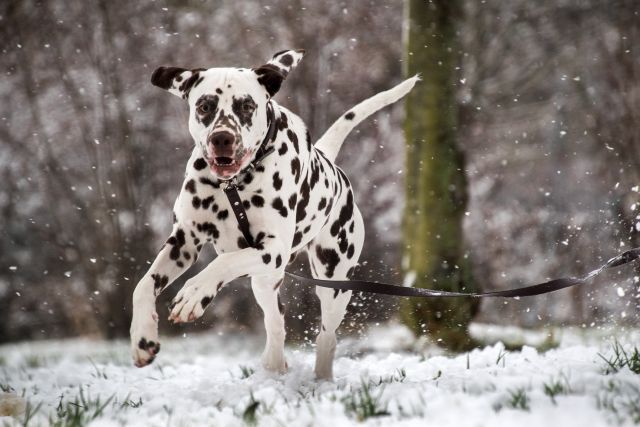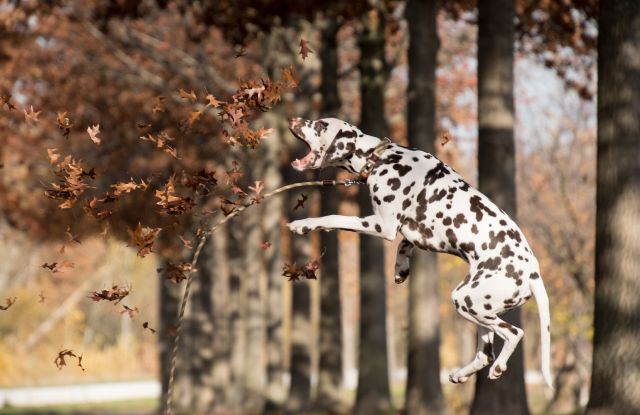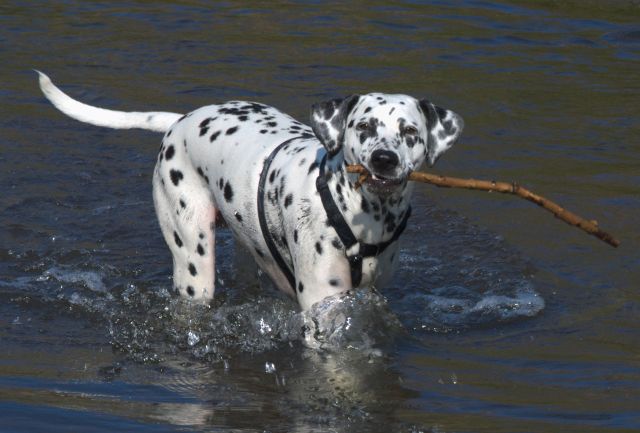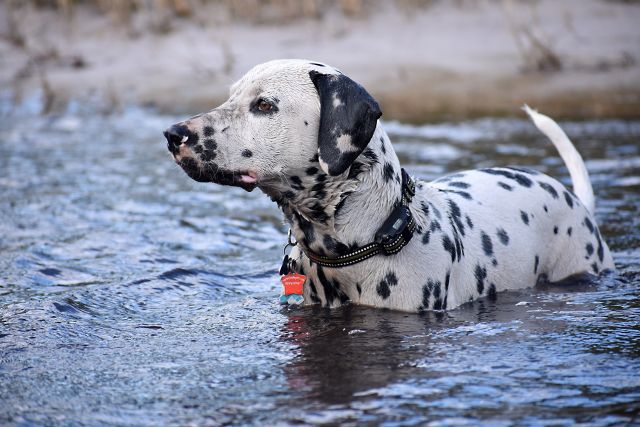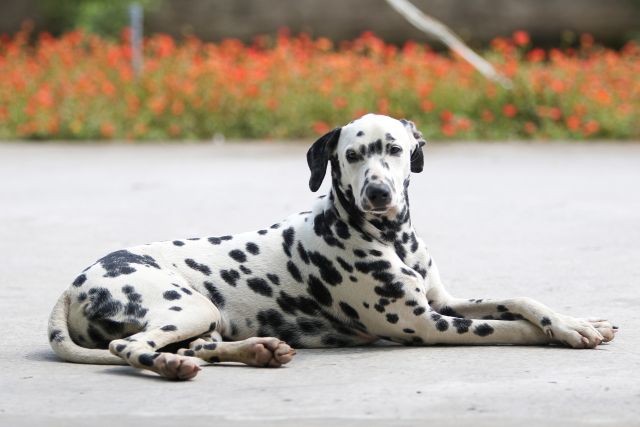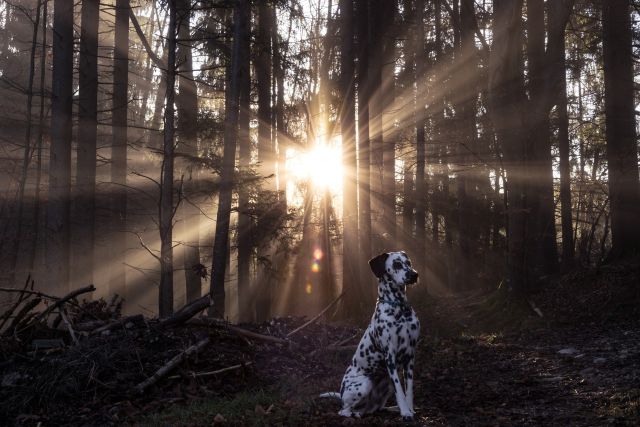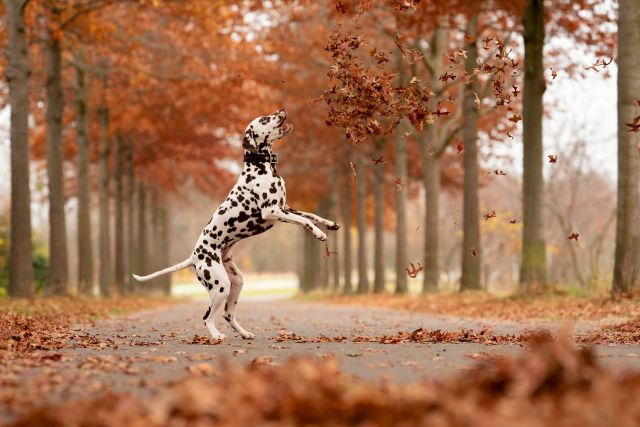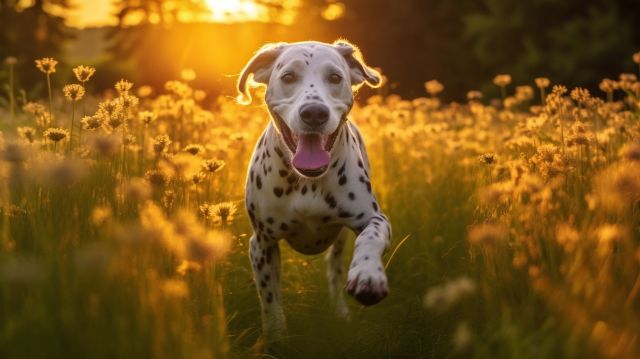The Dalmatian is a distinctive and instantly recognizable breed known for its striking coat pattern of black or liver spots on a white background. Renowned for their unique appearance and history as carriage dogs, Dalmatians have captured the hearts of many dog enthusiasts. Beyond their iconic spots, Dalmatians are known for their energy, athleticism, and friendly nature. With their enduring popularity and storied past as firehouse mascots and movie stars, Dalmatians have become beloved family pets and loyal companions.
Origin
The origin of the Dalmatian dog breed can be traced back to ancient times, with depictions of dogs with Dalmatian-like spots found in Egyptian tombs dating back to 2000 BC. However, the exact origins of the breed remain a subject of debate and speculation.
The most commonly accepted theory is that Dalmatians were originally bred in the region of Dalmatia, located in modern-day Croatia. They were initially utilized as coach dogs, working alongside horse-drawn carriages, guarding the occupants, and assisting in the management of horses.
Dalmatians gained significant popularity in the 18th and 19th centuries, particularly in England, where they were used as carriage dogs by the nobility. They also became favored by firefighters, serving as mascots and alerting the horses to incoming fire engines.
During the late 19th century, Dalmatians were further developed as a distinct breed through selective breeding for their unique coat pattern and desirable traits. The breed was recognized by various kennel clubs, and standards for its appearance and temperament were established.
While their original purpose may have been as working dogs, Dalmatians have also found success in other roles, including circus performers, movie stars, and as beloved family pets. They are known for their energetic and playful nature, making them well-suited for active households and families with children.
Today, Dalmatians are cherished for their distinctive spotted coat, intelligence, and loyal nature. Their history as working dogs has left them with a strong instinct to protect, making them vigilant watchdogs. Their striking appearance and unique heritage continue to captivate the hearts of dog lovers around the world.
Appearance
The Dalmatian is a medium-sized, athletic dog breed with a distinctive and eye-catching appearance. One of the most notable features of the Dalmatian is its coat, which is short, dense, and glossy. The base color of the coat is always white, with evenly distributed spots covering the entire body. The spots can be either black or liver (brown) in color, and they can vary in size and shape, ranging from small dots to larger patches.
Dalmatians have a well-balanced and muscular build. They have a deep chest, a strong neck, and a level topline. Their head is of moderate length, with a flat skull and a well-defined stop. Their eyes are medium-sized and can be either brown or blue. The ears are set high and are usually carried close to the head. Dalmatians have a long, tapering tail that reaches to the hock.
The breed’s expression is often described as alert and intelligent, with an air of elegance and confidence. Dalmatians have a graceful and agile gait, reflecting their athletic nature. They are known for their endurance and speed, making them well-suited for various physical activities and sports.
It is important to note that Dalmatian puppies are born pure white and develop their spots gradually over time. Their final spot pattern may not be fully visible until they reach adulthood, usually around one to two years of age.
Overall, the Dalmatian’s unique coat pattern, athletic physique, and elegant appearance make them a truly distinctive breed. Their striking appearance, combined with their friendly and outgoing nature, continues to captivate the hearts of dog lovers and make them a beloved choice for families and individuals alike.
Temperament
The Dalmatian is known for its unique temperament, which combines traits of energy, intelligence, and a friendly nature. They are often described as being highly active, outgoing, and social dogs. Dalmatians thrive on human companionship and enjoy being a part of family activities.
Dalmatians are known for their boundless energy and require regular exercise and mental stimulation to keep them happy and content. They have a playful and exuberant nature, making them well-suited for active families or individuals who can provide them with plenty of physical activities such as walks, runs, or interactive play sessions.
While Dalmatians are generally friendly and affectionate, they can be reserved with strangers and may exhibit a protective nature. Early socialization is important to ensure that they become well-rounded and comfortable in various situations and with different people and animals.
This breed is known for its intelligence and can be quick learners, although they may also exhibit an independent streak. They respond well to positive reinforcement training methods that involve praise, rewards, and consistency. Dalmatians can excel in obedience, agility, and other dog sports with the right training and socialization.
It is worth noting that Dalmatians require mental stimulation along with physical exercise. Boredom or lack of mental engagement can lead to destructive behavior or excessive barking. Puzzle toys, interactive games, and training sessions that challenge their minds can help keep them mentally stimulated.
While Dalmatians are generally good with children, it is important to teach children how to interact with them respectfully and supervise their interactions. Dalmatians may have a strong prey drive, so caution should be exercised when introducing them to smaller pets or animals.
With proper socialization, training, and attention to their exercise and mental needs, Dalmatians can make loving and loyal companions. Their friendly and energetic nature, coupled with their unique appearance, continues to attract dog lovers around the world.
Grooming
The Dalmatian has a short, dense coat that requires minimal grooming compared to many other breeds. Their coat is designed to be low-maintenance, and they are considered to be a relatively clean breed. However, regular grooming practices are still necessary to keep their coat and skin in good condition.
One of the main grooming tasks for Dalmatians is brushing. Despite their short coat, they do shed moderately throughout the year. Regular brushing with a soft-bristle brush or grooming mitt helps to remove loose hairs and prevent them from spreading around the house. It also helps to distribute the natural oils in their coat, promoting a healthy shine.
Bathing should be done as needed, usually every few months or when the dog becomes visibly dirty or odorous. It is important to use a mild dog shampoo specifically formulated for their sensitive skin. Dalmatians have relatively thin skin, so care should be taken to avoid harsh shampoos or excessive scrubbing that could cause irritation.
Another aspect of Dalmatian grooming is maintaining their nails. Regular nail trimming is essential to prevent overgrowth and discomfort. If you can hear the nails clicking on the floor, it is a sign that they need to be trimmed. Additionally, regular teeth brushing is recommended to maintain good dental hygiene and prevent tartar buildup.
It’s worth noting that Dalmatians may be prone to allergies and sensitive skin. If any skin issues or excessive itching occur, it is advisable to consult a veterinarian for guidance and possible treatment options.
Overall, grooming a Dalmatian is relatively straightforward. While they may not require extensive grooming, regular brushing, occasional bathing, nail trimming, and teeth brushing are essential to keep them looking their best and maintain their overall health and well-being.
Health
The Dalmatian dog breed is generally a healthy breed with a lifespan ranging from 10 to 13 years, although some individuals may live longer with proper care. However, like any breed, Dalmatians are prone to certain health issues that potential owners should be aware of.
One of the most well-known health concerns in Dalmatians is their predisposition to urinary tract problems, specifically the formation of urinary stones or crystals. This is due to a genetic trait that affects their ability to metabolize uric acid. It is crucial to provide Dalmatians with a specialized diet that helps maintain proper urinary pH levels and prevent stone formation. Regular veterinary check-ups and monitoring can help detect and manage any urinary issues.
Dalmatians may also be susceptible to certain skin allergies, including atopic dermatitis, which can cause itchiness, redness, and discomfort. It is important to provide proper skin care and address any skin allergies promptly to prevent secondary infections.
Another health concern in Dalmatians is deafness, which can occur in some individuals. It is important to have puppies’ hearing tested at a young age and to be prepared for the potential challenges of living with a deaf dog.
Other less common health issues that can affect Dalmatians include hip dysplasia, allergies, thyroid disorders, and certain eye conditions such as cataracts and progressive retinal atrophy.
To ensure the overall health of a Dalmatian, it is essential to provide them with a balanced diet, regular exercise, routine veterinary check-ups, and preventive care such as vaccinations and parasite control. Responsible breeding practices and obtaining a Dalmatian from a reputable breeder who conducts health screenings can also help minimize the risk of hereditary health issues.
With proper care, attention to their specific needs, and regular veterinary care, Dalmatians can lead happy and healthy lives as cherished companions.

